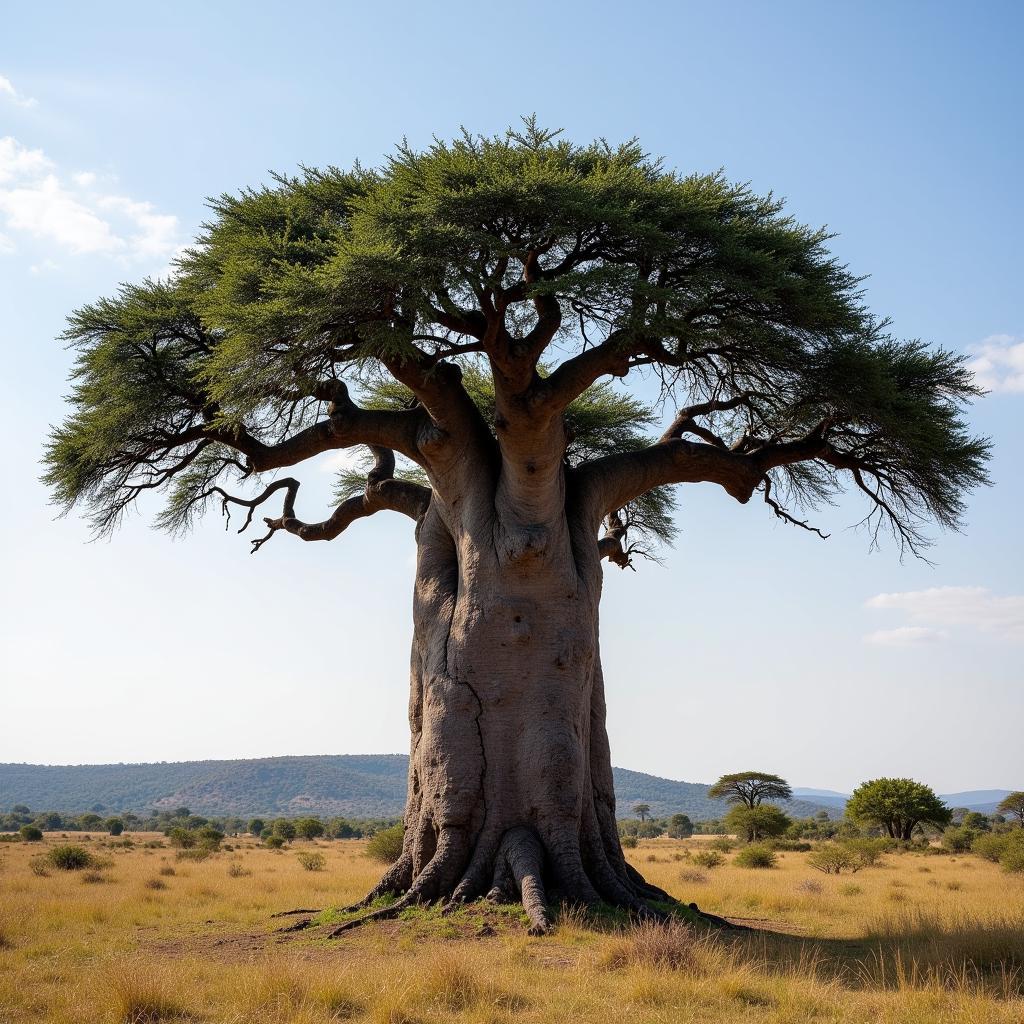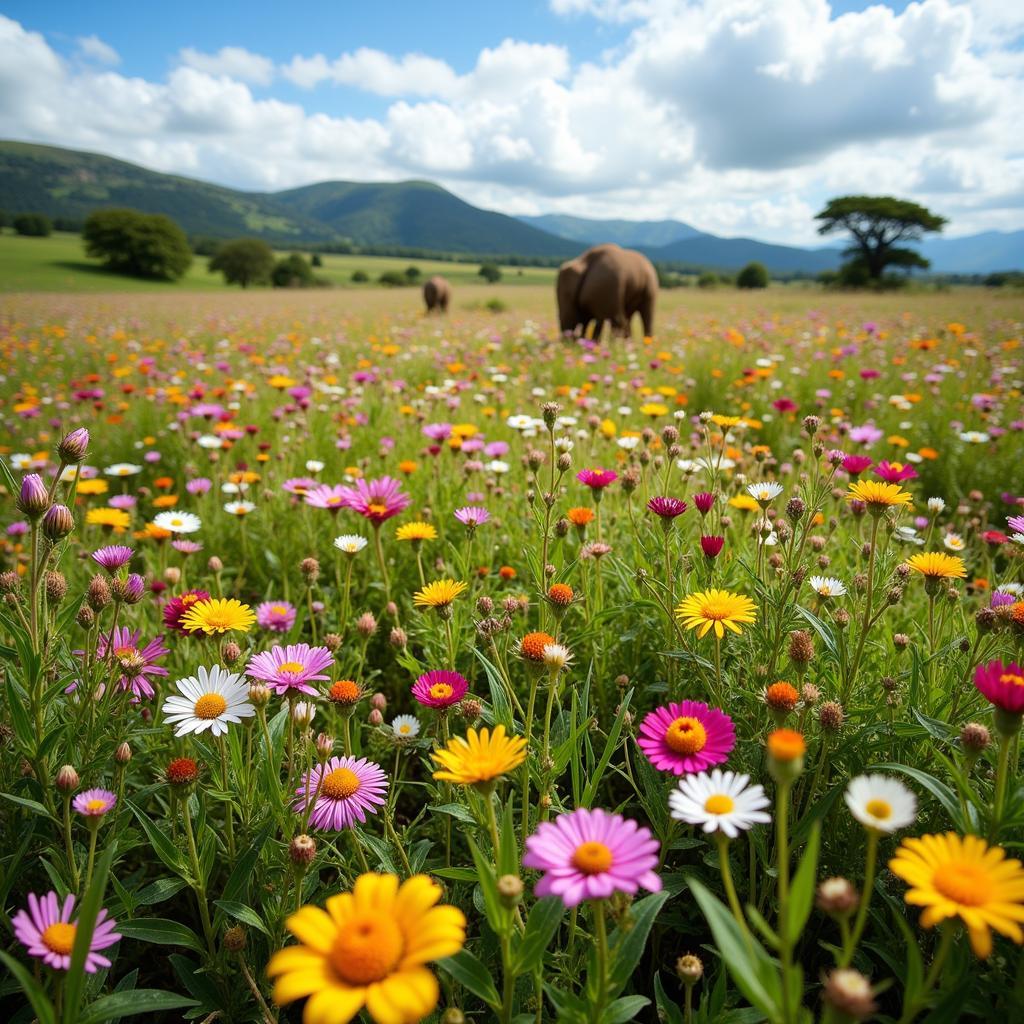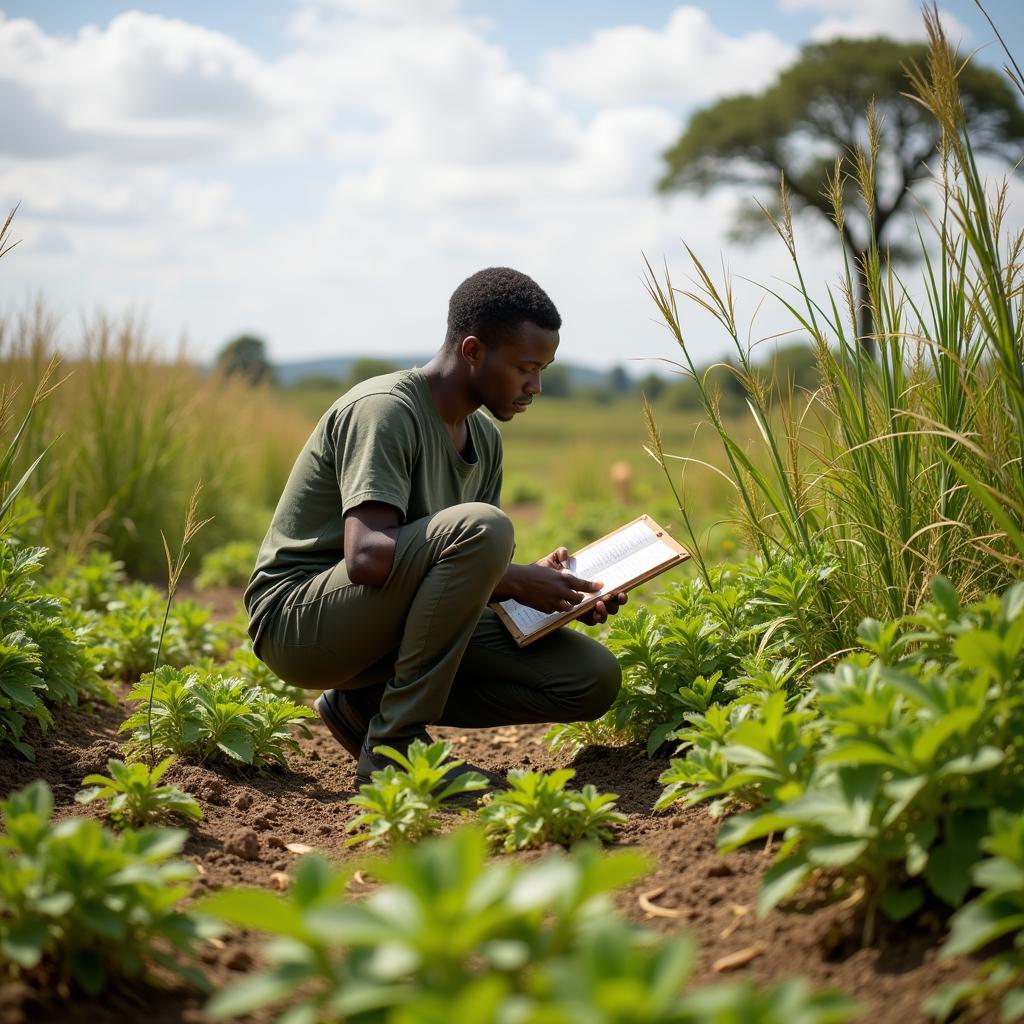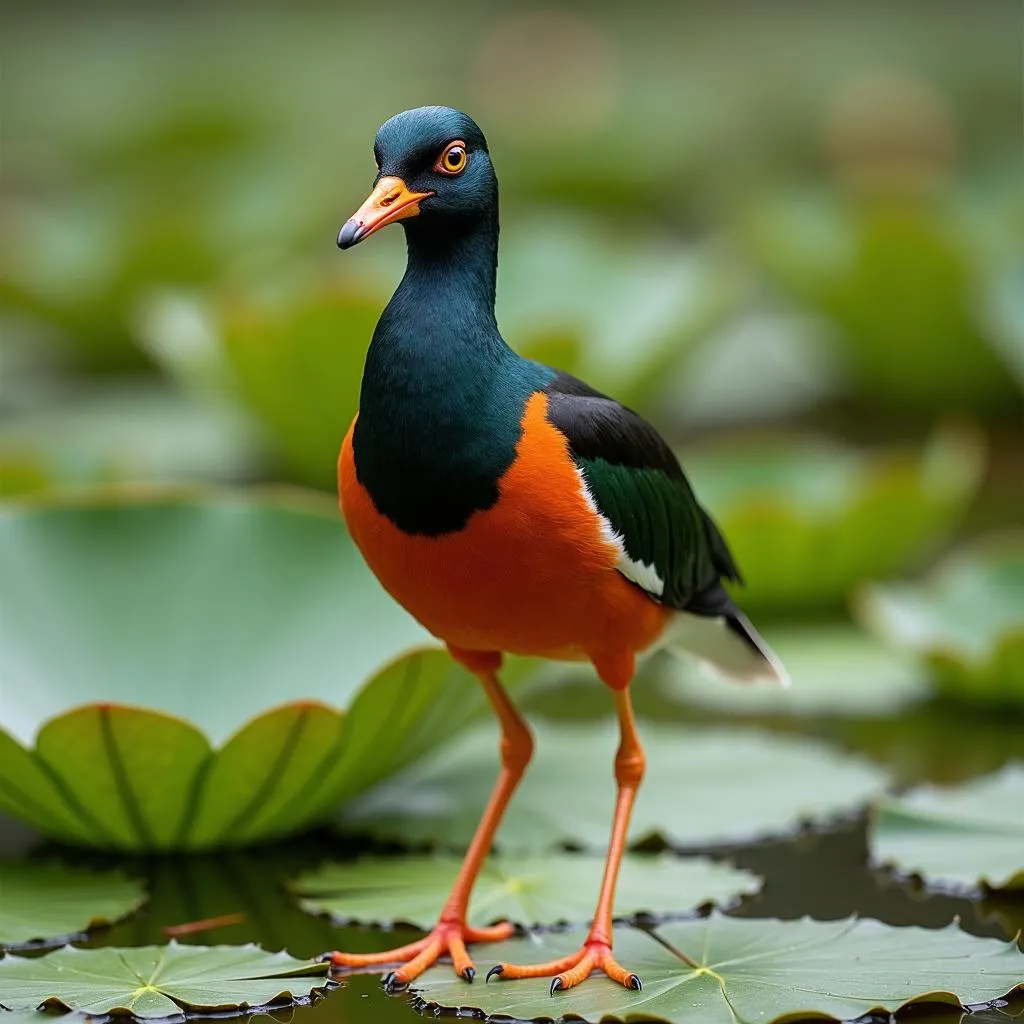Exploring the African Journal of Botany: A Gateway to Botanical Research
The African Journal Of Botany stands as a prominent scientific publication dedicated to showcasing the diverse and fascinating world of plant life across the African continent. This journal serves as a vital platform for researchers, botanists, and enthusiasts alike to delve into the latest discoveries, ongoing studies, and critical issues surrounding African flora.
Unveiling Africa’s Botanical Treasures
From the Cape Floral Kingdom’s breathtaking diversity to the unique adaptations of plants thriving in the Sahara Desert, the African continent pulsates with a vast array of plant life. The African Journal of Botany plays a crucial role in documenting this natural heritage. The journal welcomes original research articles, insightful reviews, and thought-provoking short communications covering a wide spectrum of botanical disciplines.
 Ancient African Baobab Tree
Ancient African Baobab Tree
Key Research Areas Covered
The journal’s scope extends to numerous areas of botanical study, reflecting the diverse ecosystems and research interests found within Africa. Some key areas frequently featured include:
- Plant taxonomy and systematics: Unraveling the evolutionary relationships and classifications of African plant species.
- Plant ecology and conservation: Investigating the interactions between plants and their environment, with a focus on conservation strategies.
- Ethnobotany: Exploring the traditional knowledge and uses of plants by indigenous communities.
- Plant physiology and biochemistry: Delving into the inner workings of plants, examining their physiological processes and chemical makeup.
 Vibrant African Wildflower Meadow
Vibrant African Wildflower Meadow
The Importance of the African Journal of Botany
The African Journal of Botany plays a multifaceted role in the scientific community and beyond:
- Disseminating Knowledge: It serves as a conduit for sharing cutting-edge research findings with a global audience.
- Promoting Collaboration: By connecting researchers across Africa and internationally, the journal fosters collaboration and knowledge exchange.
- Conservation Efforts: Publishing research on endangered species and threatened ecosystems helps inform and strengthen conservation strategies.
- Supporting African Scientists: The journal provides a valuable platform for African botanists to showcase their work and contribute to the global scientific discourse.
Accessing the African Journal of Botany
The journal is typically published quarterly and is accessible through various online platforms, often through university libraries or scientific databases. Abstracts are often available for free, while full access to articles may require a subscription or fee.
south african journal of botany
Looking to the Future: The Evolving Field of African Botany
As our understanding of the natural world deepens and the urgency to address environmental challenges grows, the African Journal of Botany stands as a crucial resource. The journal continues to adapt, embracing new technologies and research methodologies to further our knowledge of African plant life and contribute to its preservation for generations to come.
african jouirnal of plant science, african journal of traditional complimentary and alternative medicines
 African Botanist Conducting Field Research
African Botanist Conducting Field Research
FAQs About the African Journal of Botany
Who can submit articles to the African Journal of Botany?
The journal welcomes submissions from researchers, academics, and experts in the field of botany with a focus on African flora.
What is the peer-review process like?
All submissions undergo a rigorous double-blind peer-review process to ensure quality and scientific integrity.
Is there a publication fee?
Publication fees may apply, but waivers and discounts may be available in certain cases.
Seeking Further Information?
For specific inquiries about the African Journal of Botany, you can reach out to the editorial team or the journal’s publisher.
Remember, exploring the world of African botany is an enriching endeavor, offering insights into the continent’s natural wonders and the crucial research dedicated to understanding and preserving them.


